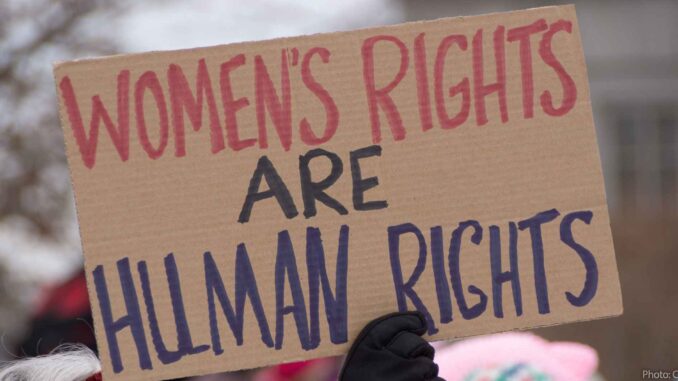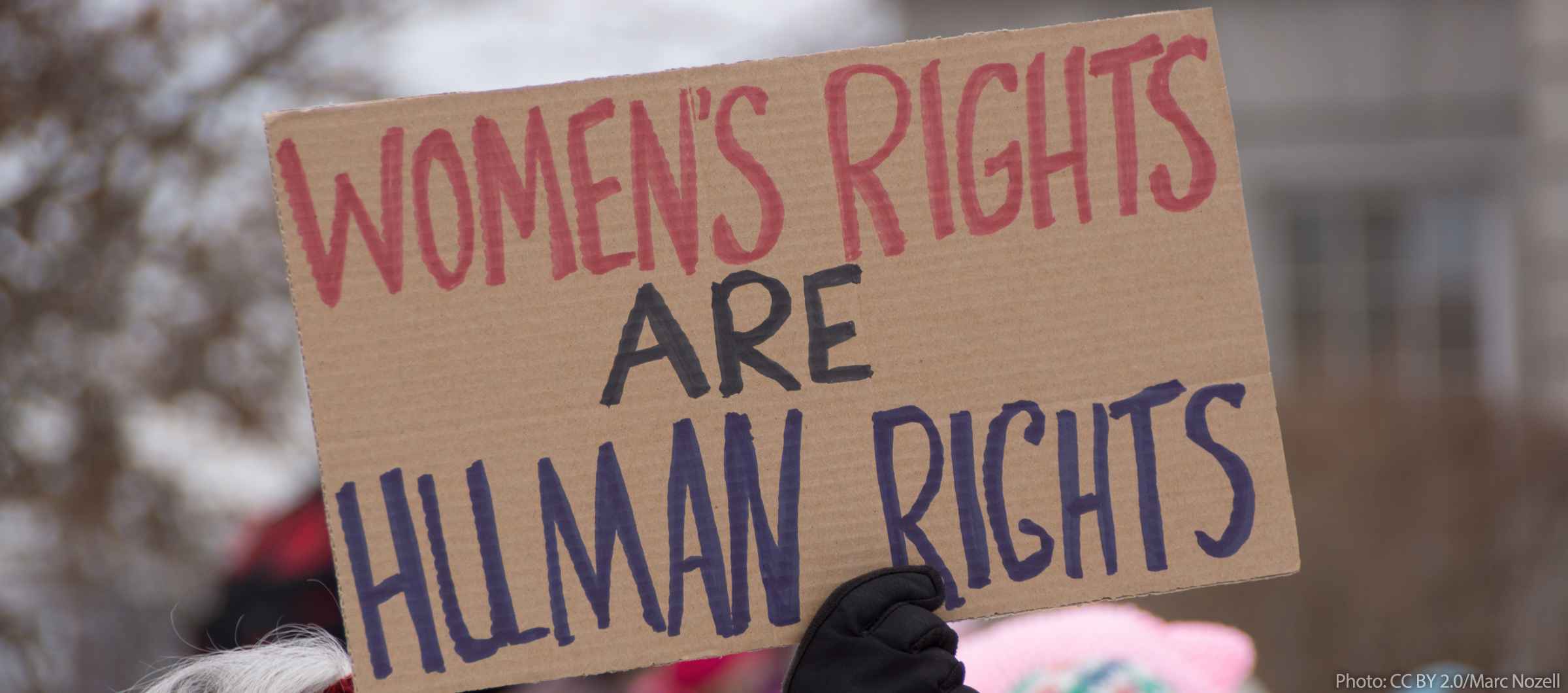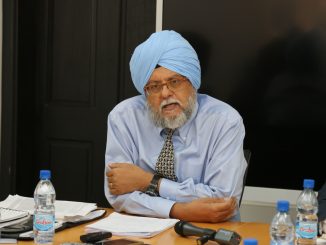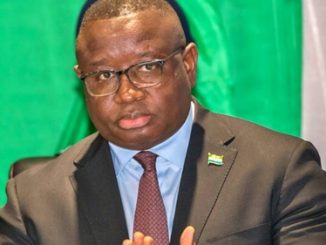
*Learning from the Past: A Call for Women to Reclaim Their Political Legacy in Sierra Leone*
Lansana Kotor-Kamara Esq.
Introduction
The story of Sierra Leone’s women is one of resilience, courage, and trailblazing achievements. From the days of Queen Yamacouba, who courageously negotiated with colonial forces in the late 18th century, to the strides of Madam Mammy Yoko, a Mende leader who commanded respect and power across vast chiefdoms, the women of Sierra Leone have demonstrated that leadership is deeply ingrained in their heritage. Their legacy is one of shaping the political, economic, and cultural destiny of a nation, despite centuries of systemic barriers and gender-based inequalities.
Yet, as we reflect on the present state of gender representation in politics, it is clear that Sierra Leonean women are far from enjoying the equality they deserve. The past holds powerful lessons and inspirations that can be harnessed to reignite the flame of political inclusion, ensuring women reclaim their rightful place in shaping the future of Sierra Leone. This chapter explores how today’s women can draw strength and lessons from their history to surmount the challenges of exclusion and redefine the political landscape.
The Foundation of Political Power: Learning from Queen Yamacouba and Madam Mammy Yoko
The roots of women’s political involvement in Sierra Leone stretch back centuries. Queen Yamacouba, a Sherbro leader, was among the signatories of the 1787 treaty that ceded land to the British for the establishment of the Province of Freedom. This act of diplomacy highlights the power of negotiation and strategic alliances, an art that modern women in politics can emulate. Yamacouba’s actions serve as a reminder that even within deeply patriarchal societies, women’s voices can shape the course of history when they assert their authority and command respect.
Madam Mammy Yoko, one of the most celebrated figures in Sierra Leone’s political history, exemplifies the virtues of determination, strategy, and resilience. In the late 19th century, she ascended to power as the Queen of the Kpaa Mende Confederacy and built one of the most formidable alliances in the interior of the country. Her leadership was characterized by the skillful consolidation of power, as she expanded her confederacy through strategic wars and alliances.
Mammy Yoko’s legacy teaches us that women are not mere participants in history but architects of destiny. Today, Sierra Leonean women must channel the same confidence and strategic mindset to navigate the complexities of modern politics. Like Yoko, they must assert themselves as leaders, collaborators, and visionaries capable of commanding respect in boardrooms, parliament, and international forums.
Lessons from Early Political Inclusion
The founding of Freetown as a colony in 1792 marked an early milestone for women’s political inclusion. Among the Nova Scotian settlers, women represented one-third of the heads of households eligible to vote. This groundbreaking achievement, unprecedented at the time, offers a critical lesson: women’s participation in governance is not a modern invention but a fundamental aspect of Sierra Leone’s political heritage.
This early inclusion of women in the political sphere highlights the importance of creating structures that recognize and reward the contributions of women. Sierra Leonean women today must demand policies and reforms that not only guarantee their inclusion but also celebrate their contributions to society. History reminds us that political inclusion is not a privilege but a right—one that women have long fought for and earned.
Economic Empowerment as a Political Tool
The 19th century saw Sierra Leonean women leveraging economic power to assert their independence and influence. The Creole women of Freetown, many of whom were descendants of Liberated Africans, became renowned traders, dominating commerce along the West African coast. Figures like Betsy Carew demonstrated that economic empowerment could translate into social and political influence.
Betsy Carew’s story, like those of countless other women traders, teaches us that economic independence is a cornerstone of political agency. For modern women in Sierra Leone, this is a call to invest in entrepreneurship, financial literacy, and economic self-sufficiency. By gaining control over economic resources, women can strengthen their political voice and ensure their interests are represented in decision-making spaces.
The Fight for Education: Building the Leaders of Tomorrow
Education has always been a powerful tool for empowerment, and Sierra Leonean women have a proud history of advocating for learning. Adelaide Casely-Hayford, one of the most celebrated women of the early 20th century, dedicated her life to promoting education for girls. In 1923, she founded the Girls’ Industrial and Technical Training School, aiming to equip women with the skills needed for economic independence and societal contributions.
Casely-Hayford’s legacy is a reminder that education is the foundation of meaningful participation in politics. For today’s women, investing in education is non-negotiable. Beyond formal education, there must be a focus on mentorship, leadership training, and political literacy programs to prepare a new generation of female leaders. Women must also challenge educational institutions to adopt curricula that encourage civic awareness and gender equality.
Political Advocacy and Organization: Lessons from Constance Cummings-John
Constance Cummings-John, the first African woman elected to a municipal council in 1938 and later Freetown’s first female mayor, exemplified the power of grassroots organization and advocacy. She founded the Sierra Leone Market Women’s Union and the Washerwoman’s Union, empowering working-class women to demand better wages and conditions.
Cummings-John’s activism underscores the importance of collective action. Sierra Leonean women today must unite in solidarity to form powerful advocacy groups that amplify their voices. Women’s organizations can play a critical role in shaping policies, lobbying for gender-responsive budgets, and holding leaders accountable.
Breaking Barriers in the Legal and Political Arenas
The mid-20th century brought significant milestones for women in Sierra Leone’s political and legal spheres. Frances Wright, the country’s first female lawyer, broke barriers in the male-dominated legal profession, championing women’s rights and serving as a magistrate. Her accomplishments demonstrated that women could excel in spaces traditionally reserved for men, setting a powerful precedent for future generations.
Similarly, the campaigns of women like Nancy Steele, who stood for parliamentary elections in the 1960s and 1970s, illustrate the resilience needed to challenge the political status quo. While many of these campaigns faced systemic barriers, they paved the way for future female politicians to demand a seat at the table.
Today’s women must draw inspiration from these pioneers, refusing to accept token representation or systemic exclusion. By asserting their right to participate fully in all aspects of governance, they can honor the legacy of trailblazers like Frances Wright and Nancy Steele.
Reclaiming the Political Narrative
As Sierra Leone moves forward, the question is not whether women can lead but how they will reclaim their place in shaping the nation’s destiny. The stories of women like Queen Yamacouba, Madam Mammy Yoko, Adelaide Casely-Hayford, and Constance Cummings-John offer a roadmap for navigating the challenges of modern politics.
To reclaim their political narrative, women must:
1. Build Networks of Solidarity: Women must form coalitions across political, ethnic, and socioeconomic divides to present a united front in demanding gender equity.
2. Invest in Education and Training: From formal education to political mentorship programs, women must prepare themselves and the next generation to take on leadership roles.
3. Leverage Economic Power: By prioritizing entrepreneurship and financial independence, women can strengthen their influence in decision-making spaces.
4. Demand Legal and Policy Reforms: Women must advocate for laws that promote gender parity in politics, such as quotas for female representation in parliament.
5. Champion Grassroots Advocacy: Women’s organizations must remain vigilant, holding leaders accountable and ensuring that gender equity remains a national priority.
A Call to Action
Sierra Leonean women have a rich legacy of leadership, resilience, and determination. From negotiating treaties to expanding chiefdoms, from founding schools to leading unions, their contributions have shaped the nation’s history. Now is the time for modern women to honor this legacy by stepping into the political arena with courage and conviction.
The road to gender equity in politics is not without obstacles, but the lessons of the past provide a powerful source of inspiration. By embracing their history and drawing strength from the achievements of their foremothers, Sierra Leonean women can build a future where their voices are heard, their contributions are valued, and their leadership is celebrated. It is time to reclaim the narrative, redefine the political landscape, and lead Sierra Leone toward a brighter, more inclusive future.





Leave a Reply